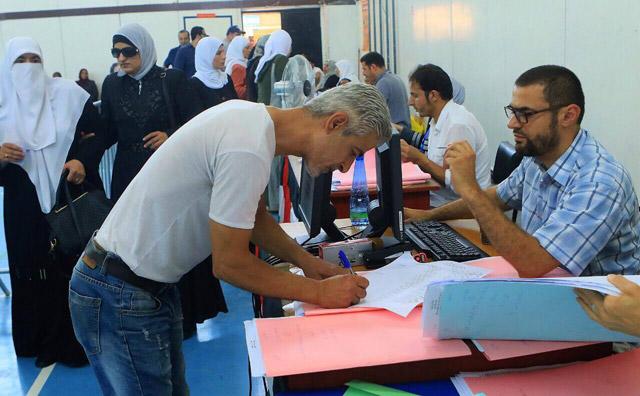You are here
‘Preparations under way for decentralisation elections’
By Khetam Malkawi - Oct 30,2016 - Last updated at Oct 30,2016
AMMAN — Preparations are under way to conduct decentralisation and municipality elections in the second half of 2017, Minister of Political Development and Parliamentary Affairs Musa Maaytah said on Sunday.
The local government elections, which will be the first in the history of Jordan, are aimed at increasing Jordanians' involvement in public life and allowing citizens to decide on issues and priorities in their governorates, Maaytah said.
Speaking at a conference on increasing women’s participation in municipal and decentralisation elections organised by Al Quds Centre for Political Studies, Maaytah said both elections would be held on the same day, noting that the government would facilitate the job of the Independent Election Commission to oversee the polls. According to Maaytah, the ministry has already launched a campaign to encourage youth and women to take part in the vote in each of the country’s 12 governorates.
Under the Decentralisation Law enacted last year, elections will be held for governorate councils, which will be tasked with overseeing development projects and services on the local level.
Some council members will be elected while a minority will be appointed by the government, Maaytah said, adding that there would be a 10 per cent quota for women in the elected seats and 5 per cent in the government lists of appointees.
Meanwhile, a study conducted by Al Quds Centre showed that 34 per cent of Jordanians are dissatisfied with the performance of their municipal councils and 22 per cent said it is average, while 44 per cent described it as good.
The study also found that 82 per cent of Jordanians believe that nepotism weakens the municipal councils’ performance.
Almost 68 per cent of the Jordanians surveyed said municipalities had no developmental role, while 78 per cent said they were confident that this performance would improve in the future.
According to the study, whose findings were announced at the conference, 78 per cent of Jordanians said the women quota and women representation in the councils contributed to improving the municipalities’ performance.
Oraib Rentawi, president of Al Quds Centre and a political analyst, said that despite embedding the women quota system in laws, more needs to be done.
Three years since the quota was implemented in municipal councils, some 65 per cent of female councillors said they still need training and empowerment on legal affairs, Rentawi noted.
Deputy Wafaa Bani Mustafa agreed with Rentawi, adding that the government should do more to increase women’s political participation in general and to ensure this participation is real and not cosmetic.
Related Articles
AMMAN — Minister of Political and Parliamentary Affairs Musa Maaytah on Tuesday highlighted the “comprehensive and systematic programmes to
AMMAN — Political parties have better chances of representation in local councils through the upcoming governorate council and municipal ele
The women’s movement and civil society have called for including a minimum 30 per cent quota for women in the draft municipalities and decentralisation laws currently in Parliament.

















